Early detection and timely treatment are crucial in preventing the progression of scoliosis


Apart From This-
What Is Scoliosis?
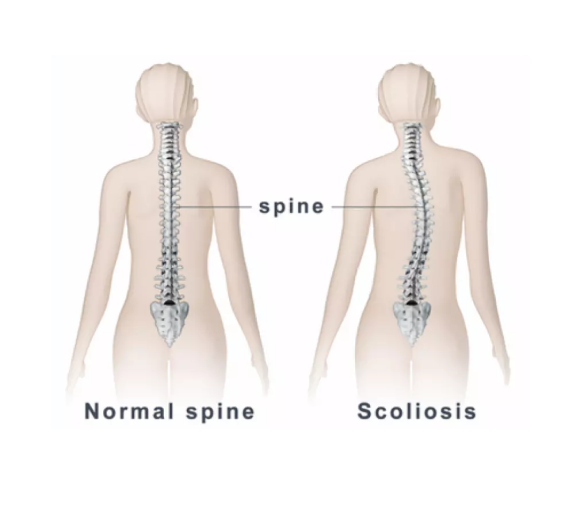
Scoliosis is a 3-dimensional deformation of the spine, characterized by a ‘S’ or ‘C’-shaped side-ways curvature. It can affect people of all ages. The various types of scoliosis include: Idiopathic scoliosis, Congenital scoliosis, Degenerative scoliosis and Neuromuscular Scoliosis. Adolescent Idiopathic Scoliosis (AIS) is the most common form of scoliosis.
In Singapore, AIS has an incidence rate of 2 percent and it is commonly found in healthy children aged between 10-17. Most adolescents diagnosed with AIS do not present with pain and cosmetic deformity can be subtle during the initial stages. Curve progression is most common around the time of puberty. Therefore, regular monitoring is highly recommended.
You may observe the following signs in a person presenting with scoliosis:
● A prominence on the back or a rib hump on forward bending secondary to the rotation aspect
● One hip is higher than the other, or more shifted to one side of the body
● Uneven waist angles and appearance of leg length discrepancy could result from the torso leaning to one side secondary to the curvatures
You may observe the following signs in a person presenting with scoliosis:
It is important to note that not everyone with degenerative scoliosis will experience all of these symptoms.

- A prominence on the back or hump on forward bending
- One hip is higher than the other, or more shifted to one side of the body
- Uneven waist angles and appearance of leg length discrepancy could result from the torso leaning to one side secondary to the curvatures

INTRODUCING
Physiotherapy Scoliosis Specific Exercise
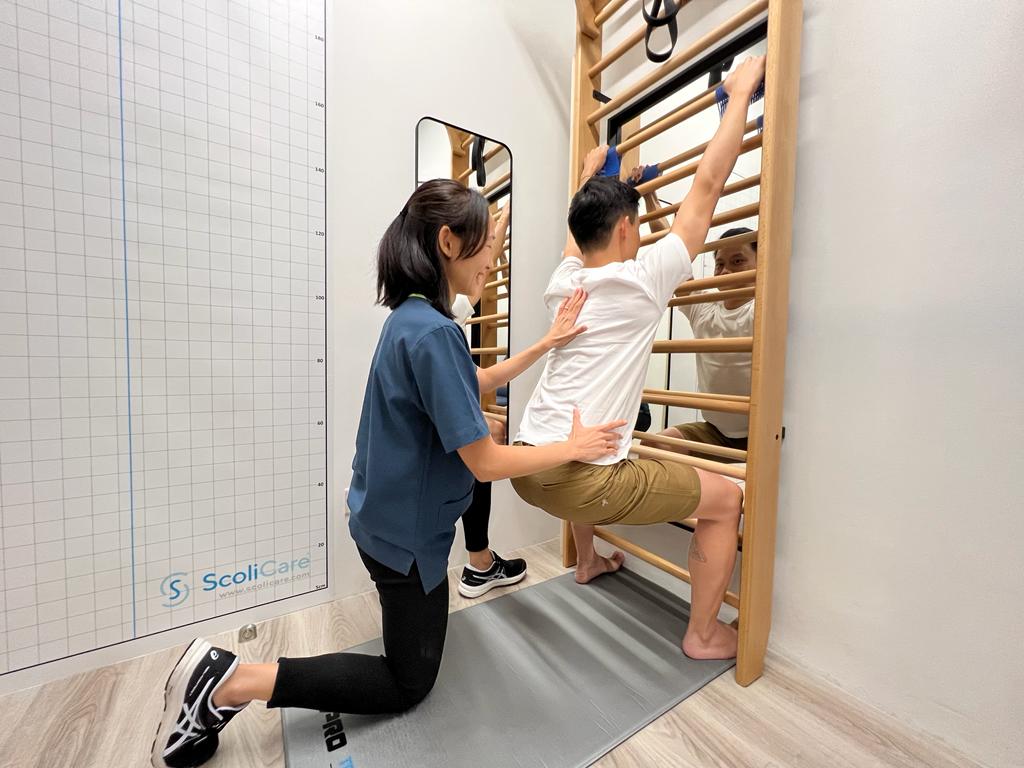
Scoliosis treatment at Rapid Physiocare

Physiotherapy Scoliosis Specific Exercises (PSSE), previously known as Schroth Exercises, are a non-invasive treatment option for scoliosis that is taught based on your unique spinal curve pattern. The aim is to improve spinal stability by using a three-dimensional approach to correct imbalances in the trunk. It is an evidence-based method that helps to halt the progression of the scoliosis curvature, especially when combined with bracing for children with AIS.
The benefits and goals of PSSE include:
● Improve postural awareness and appearance
● Promote correction of spinal alignment in a three-dimensional manner
● Increase strength and endurance of the core musculature
● Relief pain and discomfort
● Complement bracing regime
● Improve lung function and quality of life
● Reduce rate of progression and risk of surgery
At Rapid Physiocare, our team of well-trained professionals are dedicated to delivering high-quality and effective therapy to improve your condition. We are equipped with various manual skill sets and are constantly keeping up to date with the latest research in the field.


- Diagnosed with AIS
- Concerned with postural changes due to scoliosis or poor posture
- Facing movement restrictions, pain, or fatigue due to scoliosis
- Looking for ways to manage the condition without surgery
- In need of a reliable and effective intervention to assist with managing scoliosis, as well as school-related loads
- Diagnosed with degenerative scoliosis
- Experiencing back pain, stiffness, changes in posture, numbness and/or tingling in your legs
- Facing difficulties with standing and/or walking
- Looking for therapy to reduce pain, strengthen the muscles around the spine and improve your quality of life
What can you expect from attending Physiotherapy sessions?
_____
- Sessions are conducted one-on-one, and we ensure that treatment is tailored to your unique curvature.
- With PSSE, the aim is to achieve a more neutral, stable, and efficient posture during daily activities.
- Our therapists are specialized in treating scoliosis and have been accredited to teach PSSE, you can be rest assured that you are in good hands.
Here at Rapid Physiocare, our goal for you extends beyond treating the curvature – we want to walk alongside and support our clients in this rehabilitation journey.
Treatment sessions are individualized and conducted one to one under the guidance of a trained physiotherapist. Our experienced clinician will be able to help you by first assessing and understanding your condition’s history and presentation.
Why You Should Choose Us:
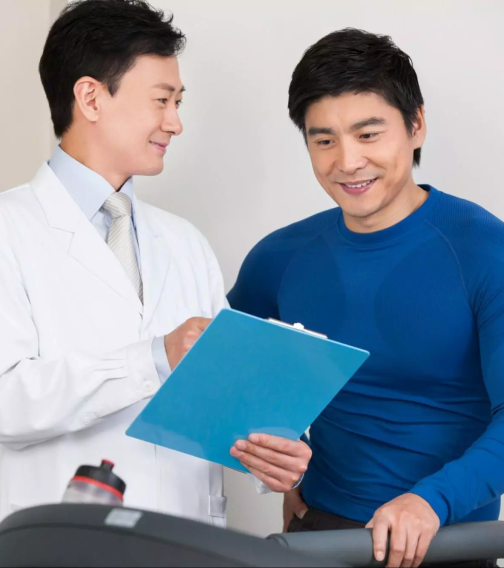
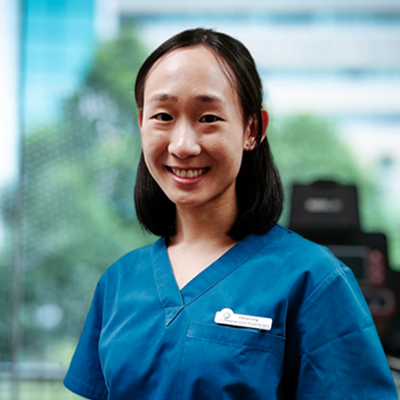

Cheryl Long
Senior Physiotherapist
Cheryl is available @Kovan and @Tanjong Pagar
Cheryl is a musculoskeletal physiotherapist who has extensive experience in treating the paediatric population. She started specialising in the treatment of Adolescent Idiopathic Scoliosis during her time in KKH, and is a fully certified Rigo-concept (BSPTS) practitioner who has journeyed with many adolescents over the years.
Being well-versed with Pilates, Cheryl has received training for Matwork and Reformer Pilates under BodyTree. She is also certified under the Australian Physiotherapy and Pilates Institute for Clinical Rehabilitation in Matwork and Ante & Post Natal Pilates.
Amanda Tham
Principal Physiotherapist
Amanda is Available @Tanjong Pagar
Amanda is a musculoskeletal physiotherapist and a certified ISST-Schroth therapist specializing in orthopedic conditions, including spine and peripheral, post-surgical rehabilitation, and sports-related injury. Amanda completed her Bachelor of Science (Physiotherapy) and Master of Clinical Physiotherapy (Musculoskeletal Physiotherapy) at Curtin University in Australia. She is an Australian Health Practitioner Regulation Agency, and Singapore Allied Health Professions Council registered physiotherapist.
Amanda has over eight years of experience working in public and private settings. She commenced practice as a physiotherapist at Singapore General Hospital. She gained experience by seeing various categories of patients, ranging from acute and chronic musculoskeletal conditions orthopedic post-surgical conditions, and geriatric and oncology patients.
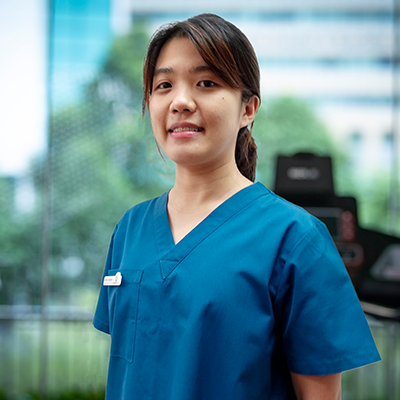

FAQ's
The number of sessions required will largely depend on the individual’s presentation. It is recommended that initial sessions be done at least once weekly for best outcomes. When you are able to be independent with the exercises, review sessions will be less frequent.
We are a registered healthcare and physiotherapy service provider offering (cashless) direct billing for our patient’s convenience. We work with primary international insurance* and medical assistance organizations* listed below –
- United Healthcare
- EURO
- BUPA
- Allianz Worldwide Care
- International SOS
- Globality Health
- AXA
- HTH
- Cigna
*Please ensure you have contacted your insurance company for pre-authorization of service. You will be entitled to direct billing when they issue you a Letter of Guarantee (LOG) indicating the number of sessions approved or the coverage amount.
The aim of PSSE and bracing is to halt curvature progression, there is no guarantee that treatment will result in reversal of scoliosis. By consistently incorporating physiotherapy exercises, most patients see and/or feel positive results in their posture over time. We do not recommend PSSE as an alternative to bracing, but as a supplementary to bracing, where bracing is recommended.
